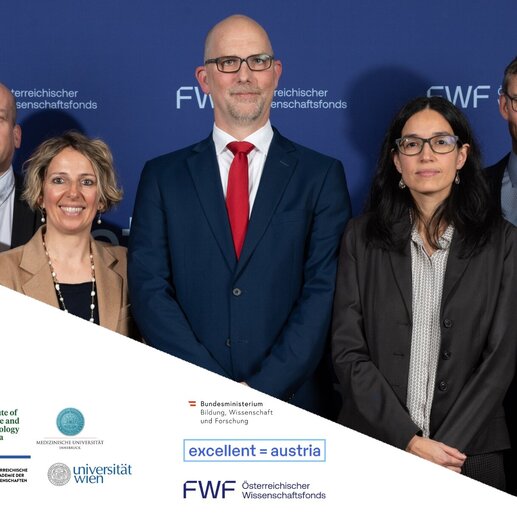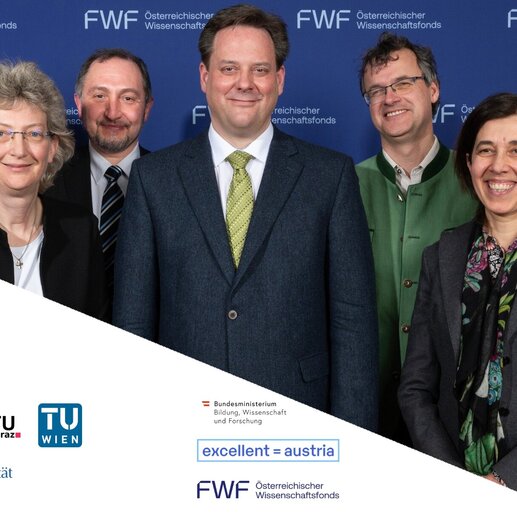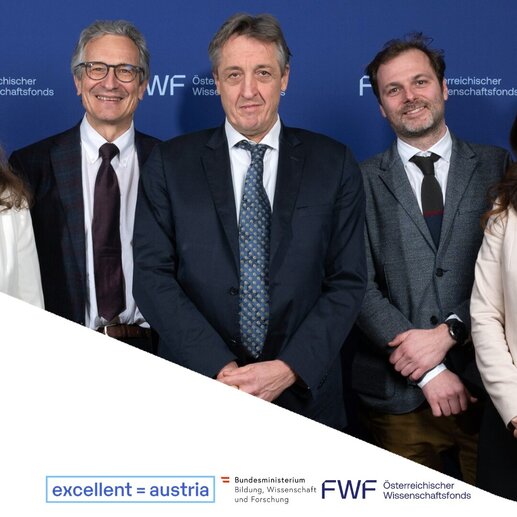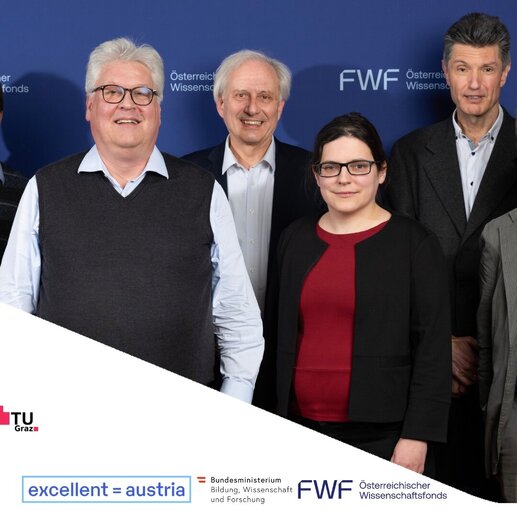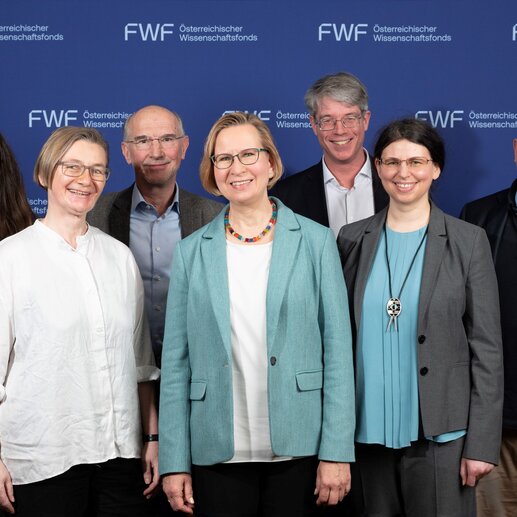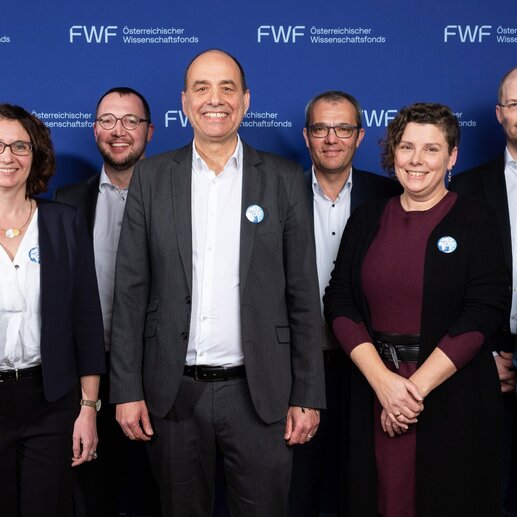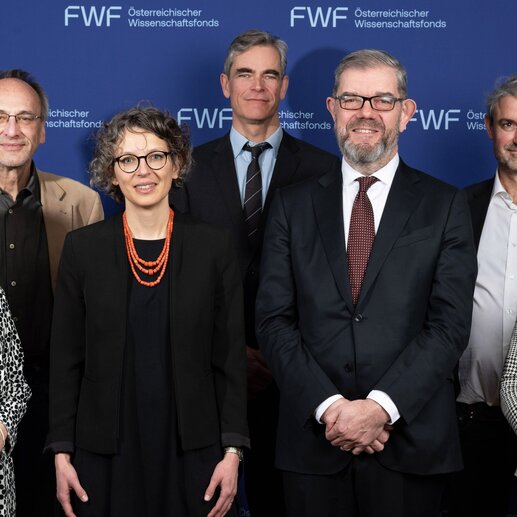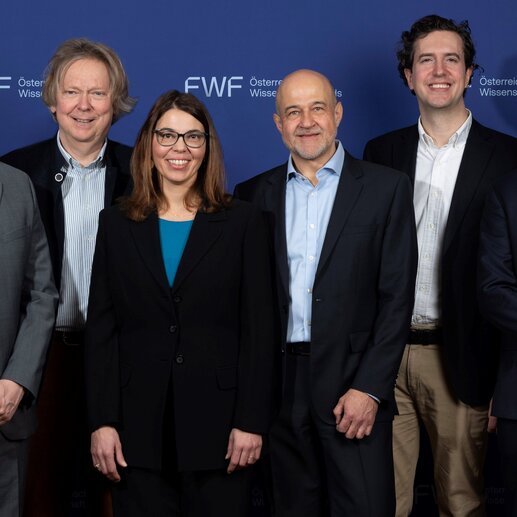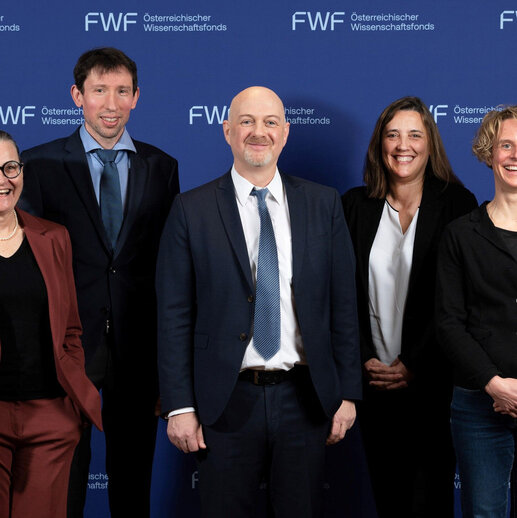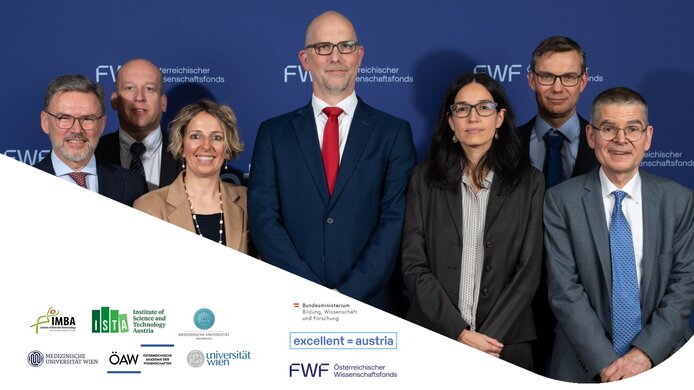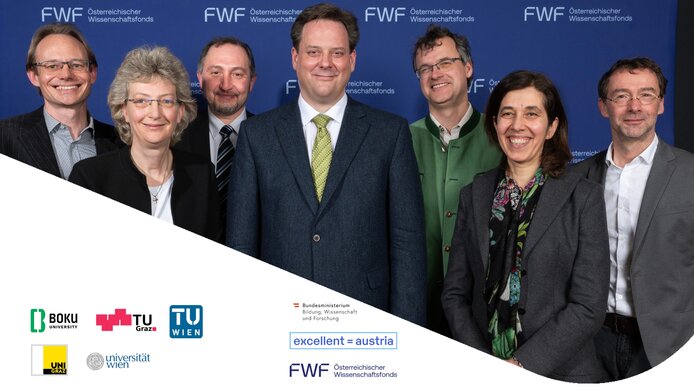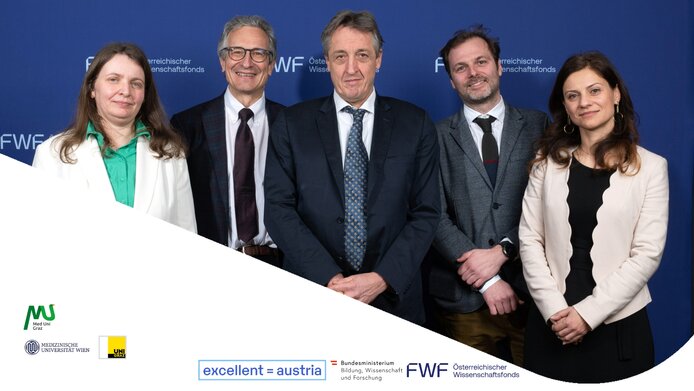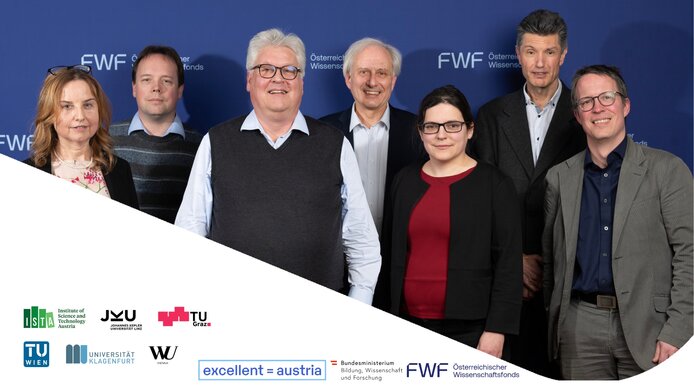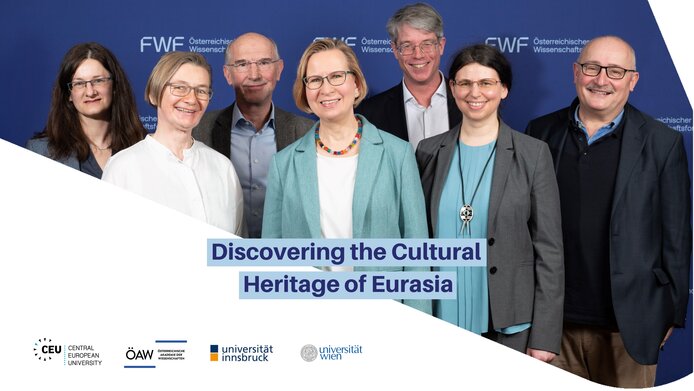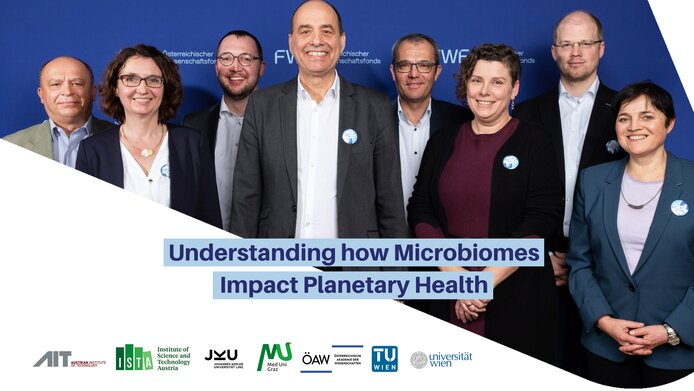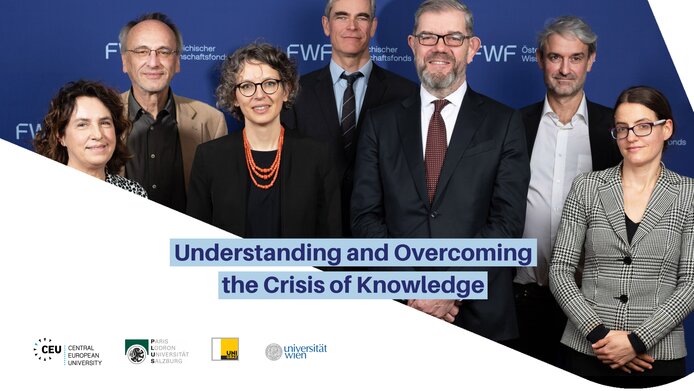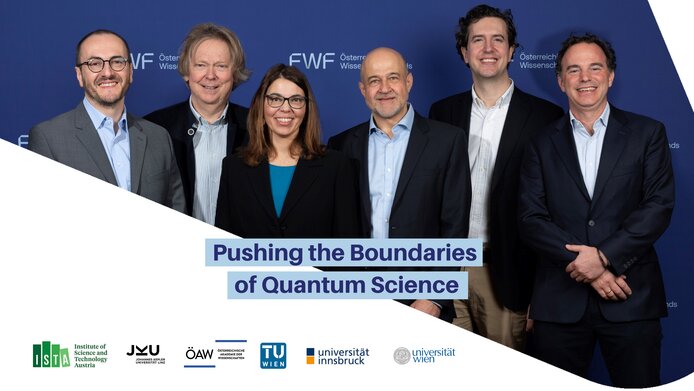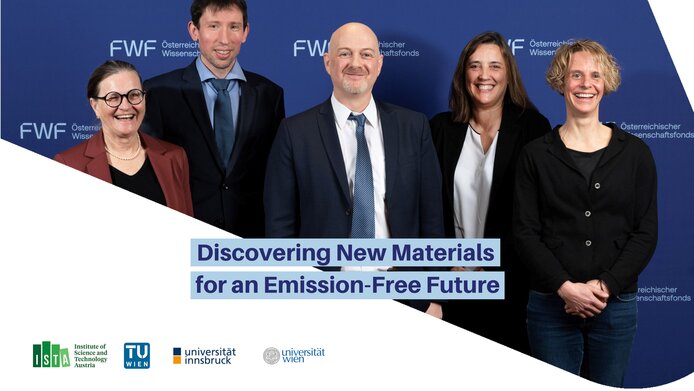Austria's new Clusters of Excellence are advancing basic research on key topics at the highest scientific level: Energy storage, quantum technologies, global health, the future of knowledge, Eurasian cultural heritage, brain research, healthy aging, artificial intelligence and materials research. The funding can be used to establish long-term structures and attractive research conditions and boost international visibility at the participating institutions. Clusters of Excellence are characterized by a successful combination of cutting-edge research, research-led education, and the advancement of junior researchers, as well as an exchange of knowledge at national and international levels. Collaborations with the business community and the public to facilitate knowledge and technology transfer are another key element of the Clusters.
Joint funding with participating universities and institutions
The Austrian Science Fund (FWF) provides 60% of the funding volume for the individual Clusters, and the remaining 40% comes from the participating research institutions’ own budgets.



